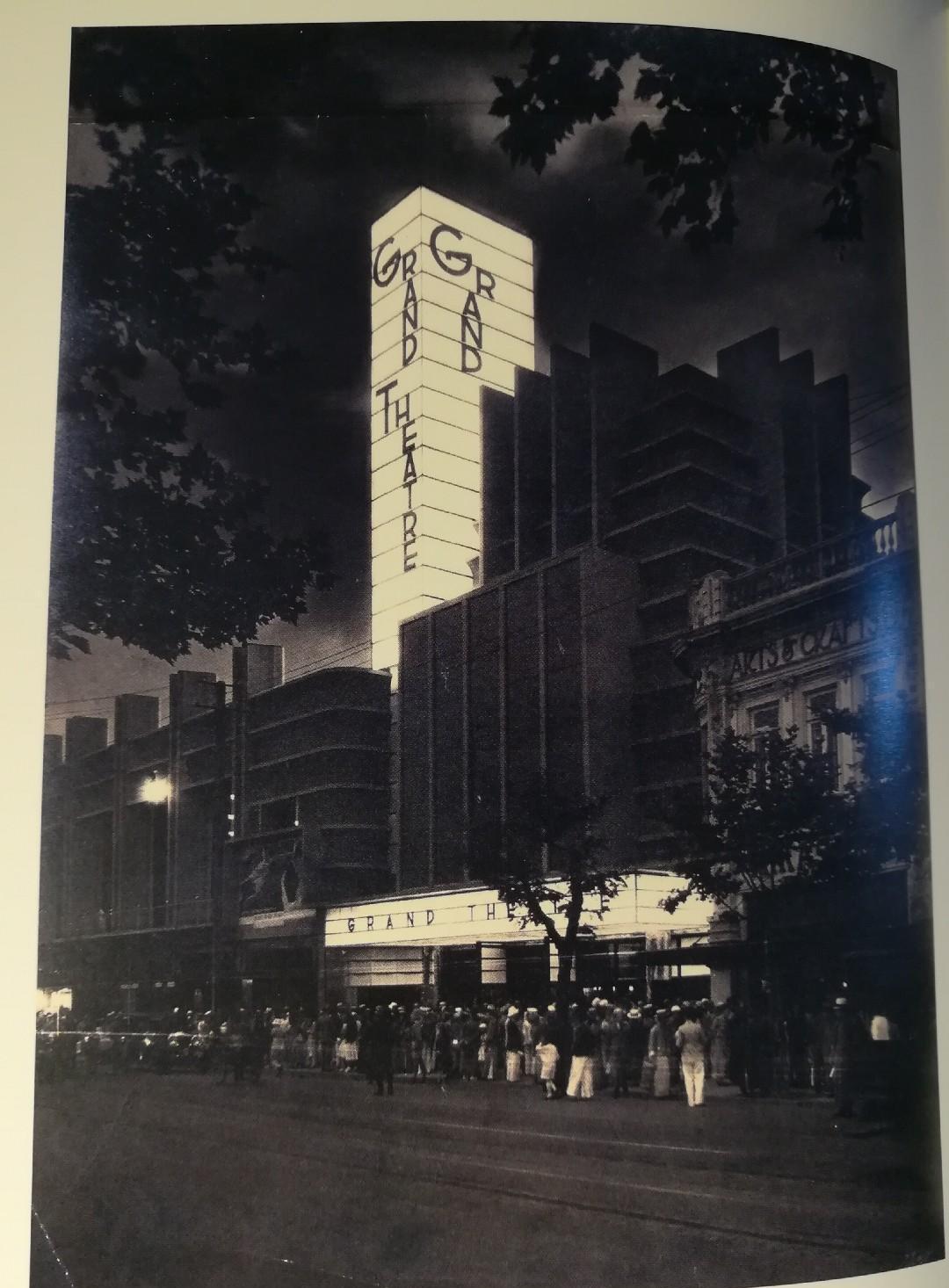Author | Monchichi's bookshelf
Source | Confucius old book network dynamics
This old photograph is a night view of the Great Guangming Cinema (formerly known as the Great Guangming Theater and the Great Bright Theater) on Nanjing Road (Jing'an Temple Road) in Shanghai in the 1930s. The night view photos of the Great Bright Cinema that I have seen in the past are blurry, but the accurate level of exposure of this photo is very clear, which is rare.
Founded in 1928 and rebuilt in 1933 by Hudak, the Great Bright Cinema became the largest and most exclusive cinema in Shanghai at that time. The Great Bright Cinema is typical of the modern Art Deco style, and from the photo, a rectangular translucent glass lamppost with a height of 30.5 meters above the entrance can be seen, which is particularly dazzling at night. The second picture is a photo of the internal facilities of the Great Bright Cinema during the Republic of China period, which can accommodate 1900 people and is the first wide-screen cinema and the first stereo cinema in Asia.
In China's modern history, the Great Bright Cinema has entered the annals of history because of its "not afraid of death incident". Not Afraid of Death is an American film released in China in 1930 and directed by Claire Denis. Starring Harold Lloyd, Isah de Banksell and others.
"Not Afraid of Death" tells the story of Roque playing a botanist in the film, who is hired to audit the kidnapping of drug trafficking gangs in San Francisco's Chinatown. The film portrays Chinese as drug thieves and robbers, specializing in unseemly things. Even the Miles Review, which was run by a foreign businessman in Shanghai at the time, thought that "this is the worst of the similar films imported from China, and any Chinese who has seen the film will be angered." ”
On February 21, 1930, the Shanghai Great Bright Theater in the public concession began to screen the film "Not Afraid of Death" produced by paramount in the United States and starring Harold Roark. The famous Chinese playwright and film director Hong Shen (1894-1955, Wujin, Jiangsu, the sixth grandson of the Qing Dynasty writer Hong Liangji) was very angry after watching the film, believing that the film teased, insulted and slandered Chinese. When roque bought flowers from the Chinese, threw the money on the ground, and the Chinese rushed to grab the money, he left the scene indignantly, and then returned to the theater and jumped on the stage to give an impassioned speech, criticizing the film for seriously insulting the Chinese, which was warmly responded to by the audience.
Hong Shen immediately submitted it to the Shanghai Municipal Party Department of the Kuomintang, demanding that the film be immediately banned from being released in the United States and around the world, and that copies of the film shipped to Shanghai must be destroyed in public. The people of Shanghai and the whole country have supported HongShen in various forms, and have also organized a "refusal to see alliance" to boycott the film.
After an extraordinary meeting, the Shanghai Opera Film Censorship Committee decided: 1, to require the two courts (the other one to release the film was the Guanglu Theater located in the south of the Bridge on Zhapu Road in Suzhou Creek, and both Daguang and Guanglu were the first round of theaters at that time) to send the films "Not Afraid of Death" for destruction; 2, any domestic and foreign films released in the future must first be sent to the Xiqu Film Censorship Committee for inspection, and unchecked films are prohibited; 3, it is explicitly announced that any film performed by Harold Lloyd in China (Shanghai) will be banned.
Since then, the film has been banned nationwide, and harold Lloyd wrote to the Chinese consul general in San Francisco on May 29 of that year because of the pressure involved in China's relations, saying: "What I aspire to do is that if I in any way violate China's national honor and dignity, I would like to express my sincere apologies to China and the people of Chinese." ”......
Compared with HongShen, Hongshen's father, Hong Shuzu (1859-1919, the figure in the middle left of the three books is Hong) is not a "good person". Hong Shuzu was not only a corrupt official, but also one of the main culprits in the assassination of Song Jiaoren (the case of the assassination of Song Jiaoren).
Song Jiaoren was the main figure of the "constitutionalists" of the Kuomintang, the most active young politician in the Kuomintang who engaged in political activities and advocated the most vigorous political party cabinet, and was also regarded by Yuan Shikai as a thorn in the eye. Hong Shuzu, as Yuan Shikai's dog-legged minions, used the bait of "destroying the Song Reward Position" to lure Ying Guixin, the leader of the Qing Gang in Shanghai, to assassinate Song Jiaoren. Ying Guixin also sought out a warrior-turned-warrior Ying as a killer, and on March 20, 1913, he shot Song Jiaoren on the platform of Shanghai's North Railway Station. On March 22, Song Jiaoren was killed.
The Assassination of the Song Dynasty has always been a mystery in China's modern history, and Chinese and foreign historians have studied it for decades or hundreds of years, but the answer is still inconsistent. In 2018, the Social Science Literature Publishing House in Beijing published the book "Retrial of the Song Case" written by Mr. Shang Xiaoming, a famous historian at Peking University, which is also the latest research results in the field of modern Chinese history research at home and abroad on the Assassination of the Song Case. The book reveals a large number of political secrets in the early Minchu Dynasty, and also gives factual and logical explanations for many contradictions before and after the Song case. Figure 3 is the shadow of the book.
